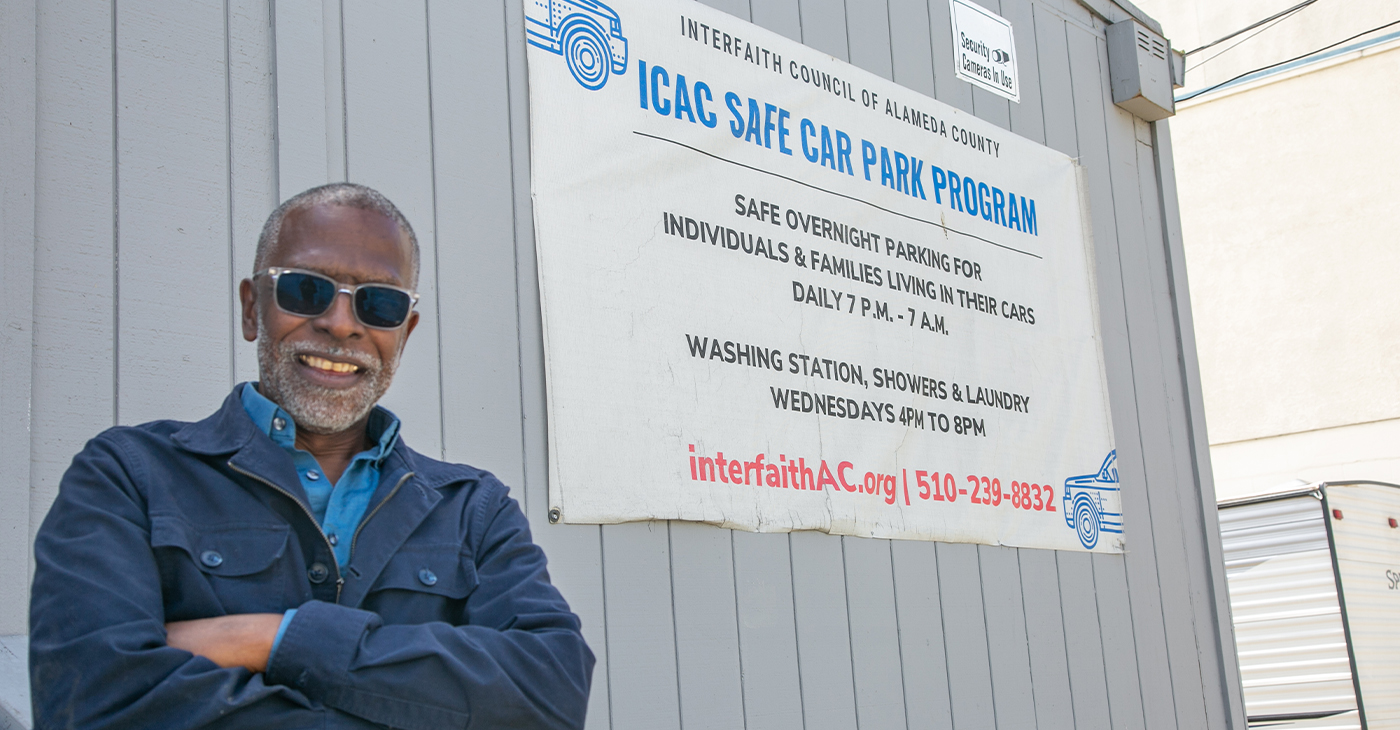Housing
OPINION – Black Communities Hit by Housing Affordability, COVID Economy Should Vote ‘Yes’ on Prop. 21

It’s no secret there is a housing affordability crisis in California. And a homelessness crisis of epic proportion. Both deeply and disproportionately affect Black communities across the state.
Black people are not only being pushed out of our major cities into the suburbs and exurbs of California but often entirely out of the state to places with more affordable housing. Many were pushed out by gentrification and escalating costs, be it a mortgage, rent, or other unaffordable living costs.
As California’s population grew from 29 million to 39 million over the past 30 years, the Black population in California dwindled to just 5.8% of the general population.
Of those African Americans who remain in the Golden State, two-thirds (65.6%) are now renters. At the same time, homeownership rates for Black Americans nationwide have been falling.
What can the African American community do to combat California’s runaway rents and rising housing costs?
Learn about and vote ‘Yes!’ on Prop. 21, the Rental Affordability Act, this election.
Prop. 21 will limit unfair rent increases and preserve affordable housing, especially in historically Black and minority communities that are particularly vulnerable to displacement due to high rents and stagnant wages.
The law returns the decision-making process on whether to allow or enact rent control measures to local jurisdictions, communities, and local elected officials. It will not mandate or require rent control anywhere in California. The measure simply allows local communities to decide what’s best for them.
Currently, the Costa-Hawkins Rental Housing Act, a one-size, fits-all state law restricts rent control throughout California, while freezing rent control laws that had already been enacted by the time the law passed.
Prop. 21 modernizes rent control by allowing local governments to limit rent increases on buildings older than 15 years, protecting millions of renters while incentivizing new housing construction.
Prop. 21 is endorsed by California Congresswomen Karen Bass, Maxine Waters, and Barbara Lee, the California Democratic Party, actor/activist Danny Glover, Rev. Al Sharpton and his National Action Network, Los Angeles City Councilman Herb Wesson, SEIU California, ACLU of Southern California, the Los Angeles Urban League, the Brotherhood Crusade and Reed for Hope Foundation.
The Los Angeles Times endorsed Prop. 21 and the Sierra Club and a dozen or so unions and labor organizations are also backing Prop. 21 including SEIU California, California Federation of Teachers, AFSCME California PEOPLE, United Auto Workers (UAW) Region 8, UAW Local 2865 and many others that have thrown their full support behind Prop 21.
Also endorsing: the California Nurses Association (CNA), representing over 100,000 nurses who have been on the frontlines of the coronavirus pandemic, bearing witness firsthand to the tremendous medical, humanitarian and economic damage the virus has caused—much of it to Black and brown families.
For Black people in California, these facts remain unchanged: systemic racism and displacement has caused a disproportionate number of Black people to become homeless.
In L.A. County, where 8% of the overall population is Black, Black people represent 34% of those experiencing homelessness. And eviction rates in Black communities are far higher than in white communities. In L.A. County, 30% of all renters facing eviction are African American.
California remains the epicenter of homelessness in America, with fully 27% of the country’s homeless living in The Golden State. California has the highest poverty rate as measured by the cost of living, and many renters pay half their income or more in monthly rent.
This means that as a very first step, we need to work now to protect the growing number of African American renters from facing evictions, displacement, and homelessness.
Prop. 21 can be that step.
Prop. 21 gives cities and counties the power to implement and expand rent control policies that limit how much rents can increase each year. It would allow local communities to:
- Expand rent control to more buildings while exempting newly constructed buildings.
- Exempt single-family homeowners who own up to two homes.
- Allow limits on rent increases when a new renter moves in.
Prop. 21 is one way to help to preserve the social and economic fabric of our state.
Vote ‘Yes’ on Prop. 21 this election and help keep families — particularly Black families — in their homes.
Cynthia Davis is chair of the Board of Directors of AIDS Healthcare Foundation and one of the five citizen proponents of Prop. 21.
Bay Area
A Summer of Reckoning for the Unhoused: The Work Before Us in Oakland
The summer of 2024 promises to be a season of reckoning for both the City of Oakland and Alameda County. The ever-present threat of gun violence, high rates of burglary, robbery and car break-ins, the lack of accessible mental health care, the scourge of sex trafficking, and the imperative need for affordable housing needs to be reckoned with. The Interfaith Council of Alameda County (ICAC) is committed to working with the faith community, service providers, advocates, businesses, and city and county officials to address the reckoning before us.

OPINION
By Pastor Kenneth Chambers
Special to The Post
The summer of 2024 promises to be a season of reckoning for both the City of Oakland and Alameda County. The ever-present threat of gun violence, high rates of burglary, robbery and car break-ins, the lack of accessible mental health care, the scourge of sex trafficking, and the imperative need for affordable housing needs to be reckoned with.
The Interfaith Council of Alameda County (ICAC) is committed to working with the faith community, service providers, advocates, businesses, and city and county officials to address the reckoning before us.
The need for emergency housing is apparent. The number of unhoused people in our city and county is both staggering and heartbreaking with a 9% increase in Oakland’s unhoused community since 2022, according to a recent report from EveryOne Home.
ICAC provides emergency housing in Oakland with a safe car park and tiny homes for people living in their cars. ICAC is also planning to develop a transitional housing village at West Side Missionary Baptist Church in Oakland with 25 trailers available to house individuals and families that are currently unhoused.
West Side MBC, at 732 Willow Street in West Oakland, is looking to partner with other congregations across Alameda County that are interested in developing transitional housing with trailers on their properties.
“There is a need for more action and funding from the state, and city and county officials to provide solutions to the homelessness crisis in Alameda County,” said Rev. Ken Chambers, Sr., pastor of West Side MBC and president of ICAC. “We want to provide unhoused people with stable, transitional housing where they can feel safe and give them some hope. But we can’t do it alone. Working together works.”
“How much more can we take?” asks Dr. Kenneth Anderson, pastor of Williams Chapel Baptist Church. “Public safety is my No. 1 focus and the need for more affordable housing for all people in Oakland. Too many people are homeless, sleeping in their cars and deserve a safe place to sleep.”
Tree of Life Empowerment Pastor Phyllis Scott also supports the proposed collaboration. “As the president of the Oakland community chaplain program, we stand in agreement and in total support of the mission. And the great reckoning that needs to take place and the belief that ICAC is the organization that can see that happen. All for the shalom of the city,” she says.
On Thursday, July 11 from 1:00-2:30 p.m., community members are invited to join ICAC at Williams Chapel Baptist Church, 1410 10th Ave. in Oakland, to reckon with the unfolding crises before us. We believe having “all hands on deck” can move our communities in the necessary direction towards solutions.
For more information or questions, visit www.interfaithac.org.
Bay Area
BRIDGE Housing and The Unity Council Celebrate Grand Opening of Casa Sueños, a 181-Unit Affordable Housing Community in Oakland’s Fruitvale Village
OAKLAND, Calif. (June 26, 2024) – BRIDGE Housing, the leading nonprofit affordable housing developer and manager on the West Coast, and The Unity Council, an acclaimed social equity development corporation, today welcomed dignitaries, partners and community members to celebrate the grand opening of Casa Sueños, a 181-unit affordable housing community in Oakland’s Fruitvale Village.

As part of the award-winning, transit-oriented Fruitvale Village, Casa Sueños provides essential affordable housing for individuals, families, and those who have experienced homelessness
OAKLAND, Calif. (June 26, 2024) – BRIDGE Housing, the leading nonprofit affordable housing developer and manager on the West Coast, and The Unity Council, an acclaimed social equity development corporation, today welcomed dignitaries, partners and community members to celebrate the grand opening of Casa Sueños, a 181-unit affordable housing community in Oakland’s Fruitvale Village.
Casa Sueños, located at the intersection of East 12th Street and 35th Avenue, will help address Oakland’s critical housing shortage by providing studio, one-, two-, and three-bedroom apartments that will be affordable for families earning 20-80% of Area Median Income. Forty-six units are reserved for residents who have previously experienced homelessness, with permanent supportive services provided by Lifelong Medical Care and funded by Alameda County. Another 29 apartments are available through vouchers from the Oakland Housing Authority. Youth and family services are provided by The Unity Council.
Casa Sueños also includes 7,500 square feet of affordable ground-floor commercial space that will be utilized by Communities United for Restorative Youth Justice (CURYJ), an Oakland-based nonprofit focused on ending youth criminalization and mass incarceration.
Today’s ribbon-cutting was attended by dozens of government leaders, housing officials, financing partners, new Casa Sueños residents, and community members.
“Casa Sueños demonstrates the transformational power of high-quality affordable housing, along with resident services, that will make a lasting positive difference in the lives of 181 individuals and families,” said BRIDGE Housing President and CEO Ken Lombard. “Working shoulder to shoulder with The Unity Council and our other partners, we have made the innovative Fruitvale Village even more vibrant – setting a new standard for livable communities that help residents realize their fullest potential.”
“Place-based affordable housing is the cornerstone of stability. This incredible structure was a BART parking lot just a few years ago. Now it will offer affordable, dignified housing to families and essential workers in the heart of Oakland,” said The Unity Council CEO Chris Iglesias. “The return on investment will benefit the entire region. All parties need to find ways to remove barriers, work collaboratively, and speed up the process for the greater good.”
Casa Sueños responds to the growing need for affordable homes for working families and essential workers in Oakland and the Bay Area. It was developed in partnership with City, County and transit partners, is steps away from Fruitvale BART station, a major AC Transit hub, and the planned Bus Rapid Transit. Initially planned as a market-rate housing development, Casa Sueños is the final residential component of the award-winning Fruitvale Transit Village, which first opened in 2004.
Importantly, Casa Sueños was the model development instrumental in the passage of AB 434, a state law that streamlines four funding programs for rental housing into a single application and award process – accelerating the production of affordable housing for Californians.
Amenities at Casa Sueños include a multi-purpose room with chairs and tables for resident educational use; a community room with desks, sofas, and a kitchen; communal laundry rooms on the first four floors; Amazon lockers in the mailroom; a large courtyard with children’s play equipment, grills, and numerous seating areas; and an underground garage with EV chargers and a bike storage room.
Founded in 1983, BRIDGE Housing has a 40-year history of providing safe, affordable homes for families in the Bay Area and throughout the West Coast. With a focus on community development and comprehensive support services, BRIDGE has nearly 1,200 units of affordable housing in 10 locations throughout Oakland, including the historic St. Joseph’s campus in Fruitvale. Its total portfolio exceeds 13,000 units in California, Washington and Oregon, providing affordable homes for 30,000 residents.
For 60 years, The Unity Council has been focused on supporting Oakland residents through improved social equity and quality of life while addressing the area’s most pressing challenges – unemployment, poverty, access to education, and erasure of cultural identity. Its programs include workforce development, early childhood education, food security, youth leadership and senior services, and development without displacement.
“As we celebrate the grand opening of Casa Sueños, a beacon of opportunity in our beloved Fruitvale of Oakland’s District 5, we affirm our commitment to equity and dignity for all,” said Oakland City Councilmember Noel Gallo (D-5). “This remarkable transit-oriented community not only provides affordable housing but also embodies our shared vision of inclusive development. Thanks to the leadership of The Unity Council and BRIDGE Housing, Casa Sueños stands as a testament to what is possible when we come together with purpose and passion. Let us continue to build unity and bridges as we create homes where every resident can thrive and contribute to the vibrant tapestry of our city.”
Financing for Casa Sueños was provided by the City of Oakland; Oakland Housing Authority; Alameda County; Alameda County Health Care Services Agency; California Department of Housing and Community Development TOD Housing Program; California Climate Investments (funded through the Greenhouse Gas Reduction Fund); Affordable Housing and Sustainable Communities Program through the Strategic Growth Council and the California Department of Housing and Community Development; National Affordable Housing Trust; Lument; JPMorgan Chase; California Tax Credit Allocation Committee; and California Debt Limit Allocation Committee. The architect is SVA Architects, and the general contractor is J.H. Fitzmaurice.
About BRIDGE Housing
BRIDGE Housing is a leading nonprofit developer, owner and manager of high-quality affordable housing on the West Coast, with a mission to strengthen communities and improve lives. Founded in 1983, BRIDGE has participated in the creation of more than 21,000 affordable homes in California, Oregon and Washington, with a total development cost of $5.2 billion. Its current portfolio totals more than 13,000 apartments that are home to 30,000 residents, with another 8,000 units in the development pipeline. For more information, visit www.bridgehousing.com.
About The Unity Council
The Unity Council is a non-profit community development organization committed to promoting social equity and improving the quality of life for diverse communities in Oakland and the Greater East Bay. Since its inception in 1964, The Unity Council has provided vital services, including affordable housing, workforce development, and health and wellness programs, to empower residents and strengthen neighborhoods.
Bay Area
Faith-Based Group and Affordable Housing Developers Break Ground for Senior Housing in West Oakland
Donald Gilmore, executive director of the Community Housing Development Corporation (CHDC) and Rev. Gerald Agee, founder and pastor of Friendship Christian Church (FCC), recently hosted the groundbreaking of a property at 1904 Adeline St. preparing for a 50-unit affordable housing complex in West Oakland.

By Carla Thomas
Donald Gilmore, executive director of the Community Housing Development Corporation (CHDC) and Rev. Gerald Agee, founder and pastor of Friendship Christian Church (FCC) recently hosted the groundbreaking of a property at 1904 Adeline St. preparing for a 50-unit affordable housing complex in West Oakland.
Special guests at the June 6 event featured Senator Nancy Skinner, Oakland Mayor Sheng Thao, Supervisor Keith Carson, along with representatives from Alameda County, the Oakland Housing Authority, and funders.
“In 2017, the community affordable housing developer and our faith-based organizations forged a partnership to collaborate on a common goal: to provide affordable housing to one of our most precious, vulnerable, and underserved populations – the seniors of the West
Oakland community,” said Agee.
Also known as the Friendship Senior Housing project, the affordable housing project is the realization of the vision of CHDC, a regional, Black-led community development corporation, and the Friendship Senior Affordable Housing organizing committee.
Located in the heart of the West Oakland, construction of the project began in the Fall of 2023. The Friendship Senior Housing project will provide housing opportunities in a comfortable, convenient, and affordable contemporary style setting.
“This project represents CHDC’s first faith-based Initiative project to break ground. As well as the first State Tax credit, BIPOC project to be developed in the City of Oakland. The project is situated within one mile of the West Oakland BART Station, and steps away from DeFremery Park, West Oakland Senior Center and West Oakland Library Branch,” said Gilmore.
The Friendship Senior Housing Development will offer 50-units of modern, secure, and convenient living for senior households age 62 and older, earning at or below 50% Area Median Income (AMI).
The four-story, garden-style building provides a variety of unit types ranging from studios to one- bedroom floor plans. The project will include 15 studio units, 34 one-bedroom units, and 1 two-bedroom unit for the onsite resident manager.
Amenities include onsite parking, laundry facilities, elevators, community room with kitchen, computer lab, office space for the onsite manager and resident services staff, and indoor and outdoor common areas to promote social interactions between the residents.
Development and construction of Friendship Senior housing is being made possible through a variety of financial resources, including, the California Tax Credit Allocation Committee & California Debt Limit Allocation Committee, City of Oakland, California Department of Housing and Community Development, Oakland Housing Authority, Alameda County Health Care Services, Citibank, CREA, Department of Toxic Substances Control and Local Initiatives Support Corporation.
-

 Arts and Culture3 weeks ago
Arts and Culture3 weeks agoRooted in Tradition: The Intricate History of Black Hair Braiding
-

 Bay Area4 weeks ago
Bay Area4 weeks ago“I Will Not Be Bullied,” Says Oakland Mayor Sheng Thao
-

 Bay Area2 weeks ago
Bay Area2 weeks agoPG&E Increases Rates While Bay Area Households Are Struggling to Stay Afloat
-

 Business3 weeks ago
Business3 weeks agoGov Newsom: Raising Fast Food Minimum Wage to $20 Pays Off as Jobs Multiply in Industry
-

 Activism4 weeks ago
Activism4 weeks agoOpponents of Mayor Sheng Thao Are Calling on Her to Resign Following FBI Raid
-

 Community1 week ago
Community1 week agoHundreds Come to Jehovah’s Witnesses’ Assembly Hall for Three-Day Program of ‘Good News’ in Fremont
-

 Bay Area2 weeks ago
Bay Area2 weeks agoJuneteenth Mass Shooting Suspect Charge with Multiple Counts of Felony Assault by Alameda County DA Pamela Price
-

 Activism4 weeks ago
Activism4 weeks agoOakland Coliseum Sale to AASEG: A Model for Community Development and Inclusion




















































